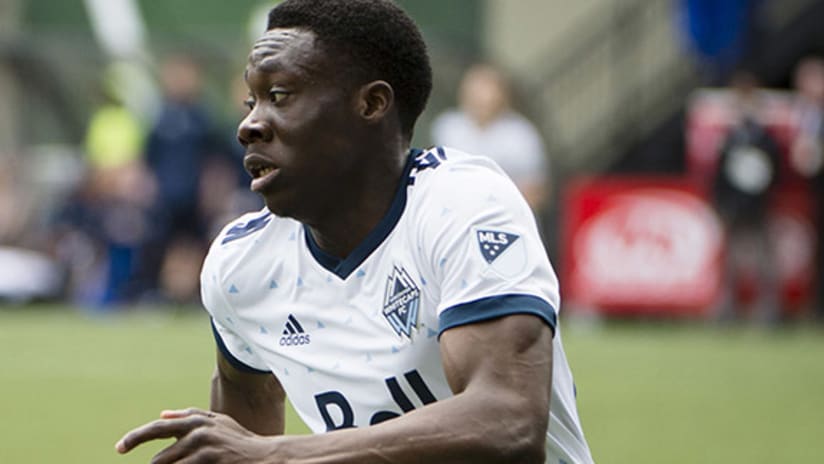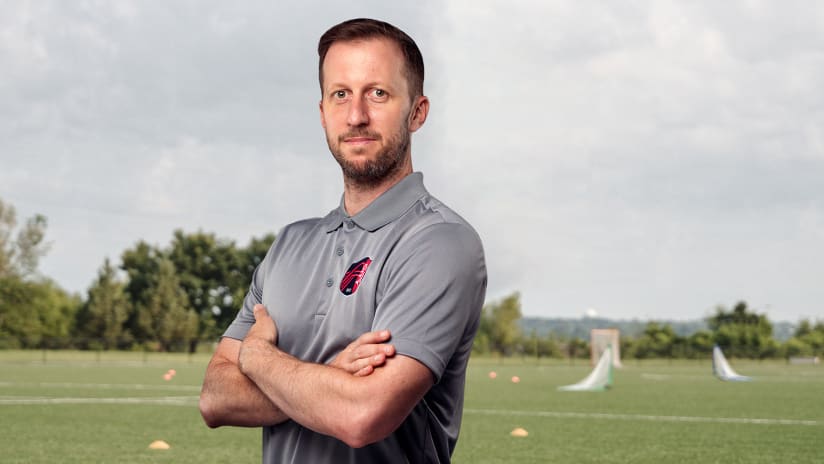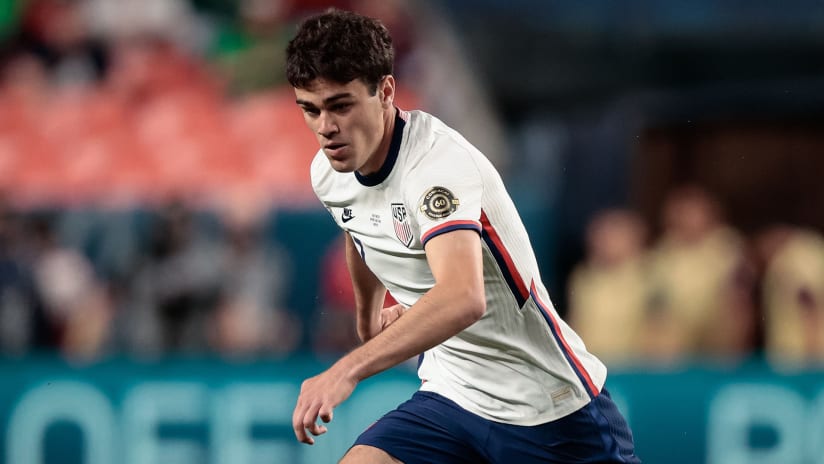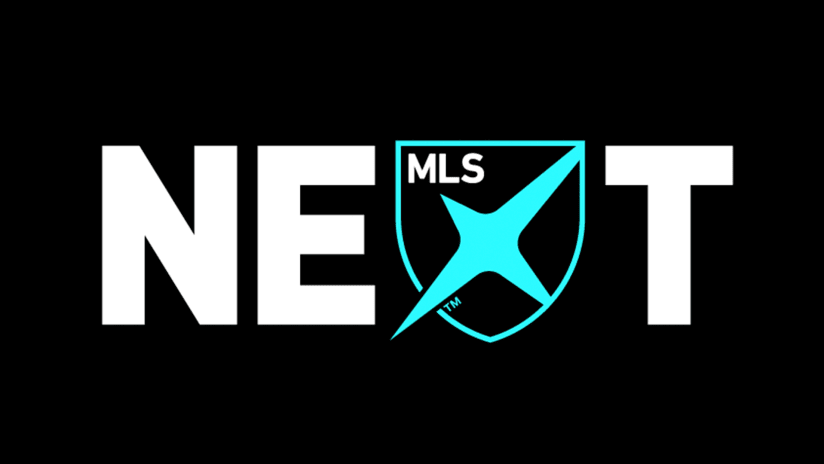With 24 Under 24 week fast approaching, here's an exclusive Q&A with MLS Technical Director of Player Youth & Development, Player Personnel Fred Lipka published last October.
For years, Fred Lipka devoted his time and energy to developing the next generation of French talent at Le Havre, where the academy has churned out big names such as Lassana Diarra, Steve Mandanda, Dmitri Payet and Paul Pogba.
For the past three-and-a-half years, Lipka's thrown his efforts behind the drive to replicate those efforts in North America as the main conduit between the French Football Federation (FFF) and Major League Soccer. Two crops of MLS academy coaches have navigated the labor-intensive, 52-week Elite Formation Coaching License (EFCL) course, designed to transfer best practices in the realm of youth development from French coaches to their American and Canadian counterparts.
The consensus from the 34 MLS academy coaches who have completed the program so far is clear: It's one of hardest things they've ever done in their careers.
That's by design. With so much investment and focus centered around MLS academies and Homegrown players, clubs know they must improve the quality and strategic nature of youth coaching and talent development in order to build from the bottom up.
These days, Lipka is a full-time MLS employee, and his job as Technical Director of Player Youth & Development, Player Personnel is bigger than just EFCL. His main focus, outside coaching education, is to help clubs develop the elite pathway that will guide their academy products from the youth ranks into the first team.
MLSsoccer.com sat down with Lipka in late September to discuss the EFCL course and the state of youth development in MLS. That conversation is below and has been edited for clarity and brevity.
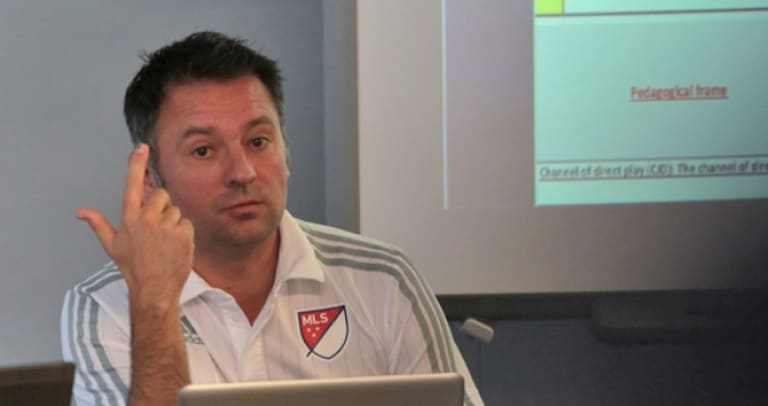
It’s been three years since you took the reins of the EFCL partnership between MLS and the FFF. Where does the project stand today?
“We are now in the best position we’ve ever been to develop kids, but the elite pathway is not yet clear enough. The elite pathway is how to put the best kids in the best environment in the best structure. Youth development is an iceberg. We can see [FC Dallas midfielder Paxton Pomykal], we can see [Atlanta United FC’s Andrew Carleton], all these kids who are signing at 16 or 17. But to prepare for that is a lot of work, lot of dedication and it’s a big organization. It’s not only two or three players that we want to sign. If we want to sign players like this regularly – like Paxton, Carleton, the kids in Philly or the kids in Vancouver like Alphonso Davies – we have to make this elite pathway clear, improve it and be more efficient.”
What is the biggest change or improvement you’ve seen in the past three years?
“I have seen a switch in terms of quality of play within our academies. Today, when I observe the competition aspect, I see a very interesting switch in terms of quality of the games. Our coaches right now – we have roughly 30 coaches who have taken EFCL courses – improve their staffs as well. It’s kind of a contagious process. I can see, more and more, our coaches not only focused on the result, but focused on the quality of the game. That means what? They are very focused on the way of teaching, they are very focused on the tactical aspects, they are very focused on how to transfer their knowledge of the game to their players.
"Not with a remote control, to tell them, ‘You have to do that and that,’ because we all know if we want to be efficient, we have to make players autonomous and be able to solve problems individually and collectively. Soccer is a nonstop game. The influence of the coach is not very present during the game. It’s very present during the week, when the coach has to prepare the team to respond well tactically and technically. All the job is made before, and the game is the moment for the player, the moment of truth to give a response. If we don’t have the right processes in terms of youth training process, we won’t be able to give them the knowledge or capacity to solve problems.”
Have we seen the benefits of EFCL in MLS games yet? If not, when will we see players affected by those coaches and the development efforts their leading begin to filter through into first teams?
“I think the first crop of the kids affected by EFCL are right now 16 and 17, and we will see the benefit of this work in maybe two years for the first ones. But it can happen now as well. Attitudes are changing. If staffs trust their rising academy players and young talent and establish a clear line from the academy to the first team – we've seen it with FC Dallas, Vancouver, Philly, Toronto and others already – there's no reason why those players can't make the jump and succeed. Part of that process is identifying the right players. When you improve the way of coaching and the way of teaching, you also improve the way of scouting. We are not, right now, focused on the same profile for players. It’s a systemic approach. If I have more knowledge about the game, it means I am going to pick the player better able to solve the tactical and technical problems instead of just picking the big kids. I am going to adjust my way of scouting – I won’t be focused on the same parameters.
"There is pressure in this country and this continent on the result, to win the game. But we all know with some gifted kids we have to wait. We have to be patient. We are not able to win today with these kids. It’s a bet in the midterm. So to be a good coach is to give time to the late-maturity kids, to give them confidence, to avoid them dropping off and to have the foresight and knowledge to recognize that kids who may not be effective in the short term need time to grow and develop and gain confidence. Right now, I don’t see the same player profile on the field as I did four years ago. That is clear progress.”
In the United States and Canada, we’ve tended to look to Europe, South America and Mexico for best practices in the realm of youth development. How do we balance borrowing expertise, as seen through the EFCL program, with the unique environment here?
“You have the reality and fantasy, and the reality is that North America is not Europe or Central or South America. It’s not the same culture, it’s not the same investment and it’s not the same processes. I think we are at the beginning of youth development in this country. It’s a baby sport here. The club I ran in France [Le Havre] was created in 1872. It’s the oldest club in France. The first academy was created in the ‘70s and mandated in 1980. We have 40 years of knowledge, 40 years of processes. We have a tradition. In France, without youth development, we would be nothing. We created, only with youth development, our successes. There, those in charge of youth development are not coaches. It’s not the same job. Winning is a part of the job, but winning is the job of the kids. They have to take ownership in the victory. The coach is a guide.
“We must make it evident for kids who want to become professional what the pathway is for them. And to be able to tell their parents, there is a way to have both a professional career and a college education. In Europe, it is exactly the contrary. Where I come from, only between two and five percent of our kids who become professionals have a degree after the 12th grade. It’s a problem in terms of culture. It’s a problem for them after the career. Here, we have to connect both.
“The consequence is that we create a market. We play young. When you play with players 18 and 19 years old, for sure all the people abroad are looking at your players. Internationally speaking, when you are 23 or 24, you are not a young player anymore. You are a developed player. The more we give experience at a young age, the more you can optimize the potential of the player because the golden age to begin to play, to learn and to compete, at the highest level, is around 16 or 17.”
There have been a number of high-profile academy products who’ve chosen to continue their careers in Europe rather than sign MLS deals. Weston McKinnie at FC Dallas is probably the most recent, signing a deal with Bundesliga club Schalke. How do you feel when you see that happen?
“Each time I see a kid leaving, I am disappointed because I think right now our clubs are ready to play young. It wasn’t always the case. It wasn’t maybe the case before, but I think more and more I think our clubs are ready or should be ready to play young. We have to find an option to keep these kids. It’s a legitimate objective. I hope in the future – and for some even right now – it will be natural to play with 18-year-olds or younger. It’s not crazy. It’s something normal in soccer. And it won’t be a red carpet. They have to deserve it. But you also have to prepare the right environment and conditions to play young ..."
“To me, our league will change when we are able to create a domestic star. Not only a young star, but a domestic star. That will change the face of this league. I’m not sure if we sign Luis Suarez or Lionel Messi that it will change everything. If we develop very good young American and Canadian players and several, it will change the representation of everyone. It’s like a lottery. If you don’t play, you can’t win. If young players don’t play regularly, you won’t win. That’s the challenge. We have to play younger. If we don’t play younger, we won’t have the chance to create a future international star. We have to move smartly, and not just quickly.”

